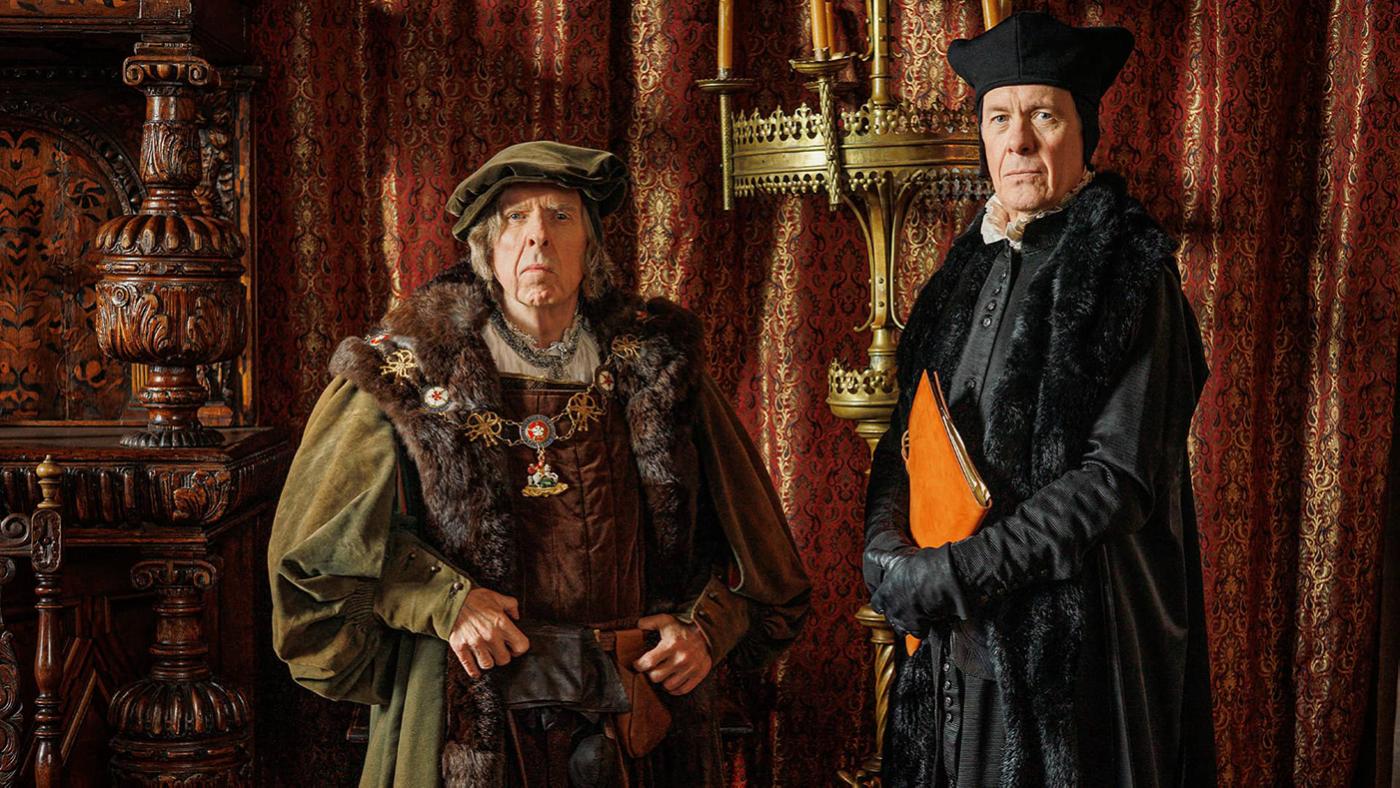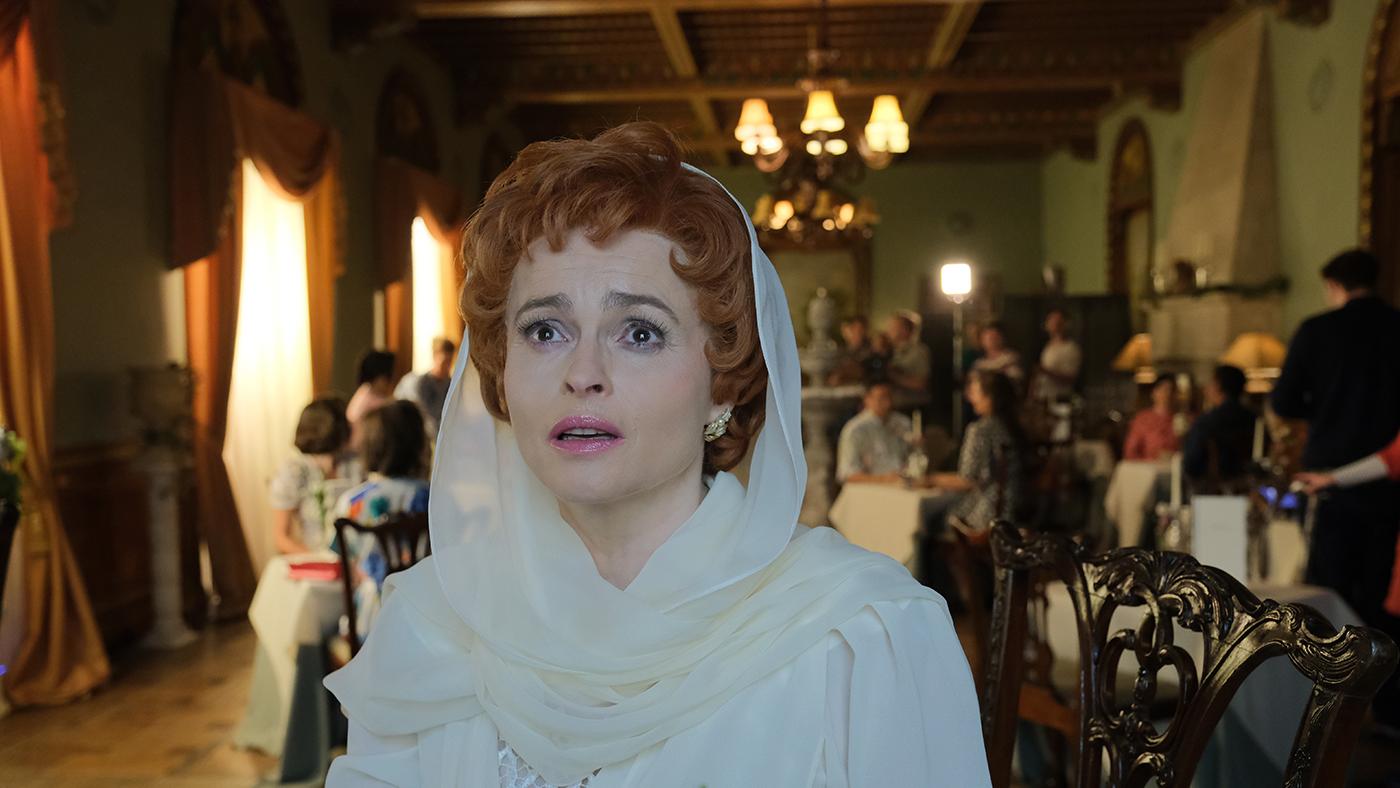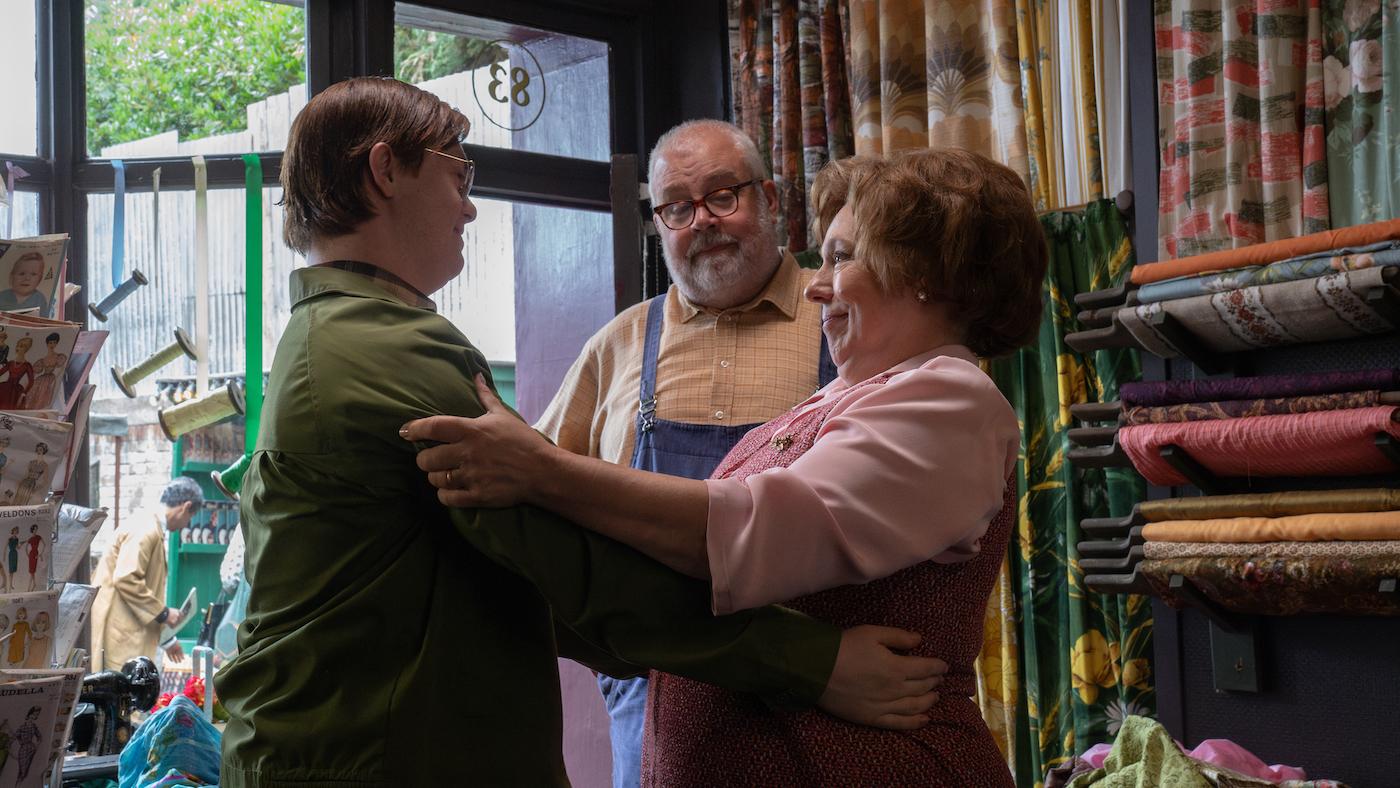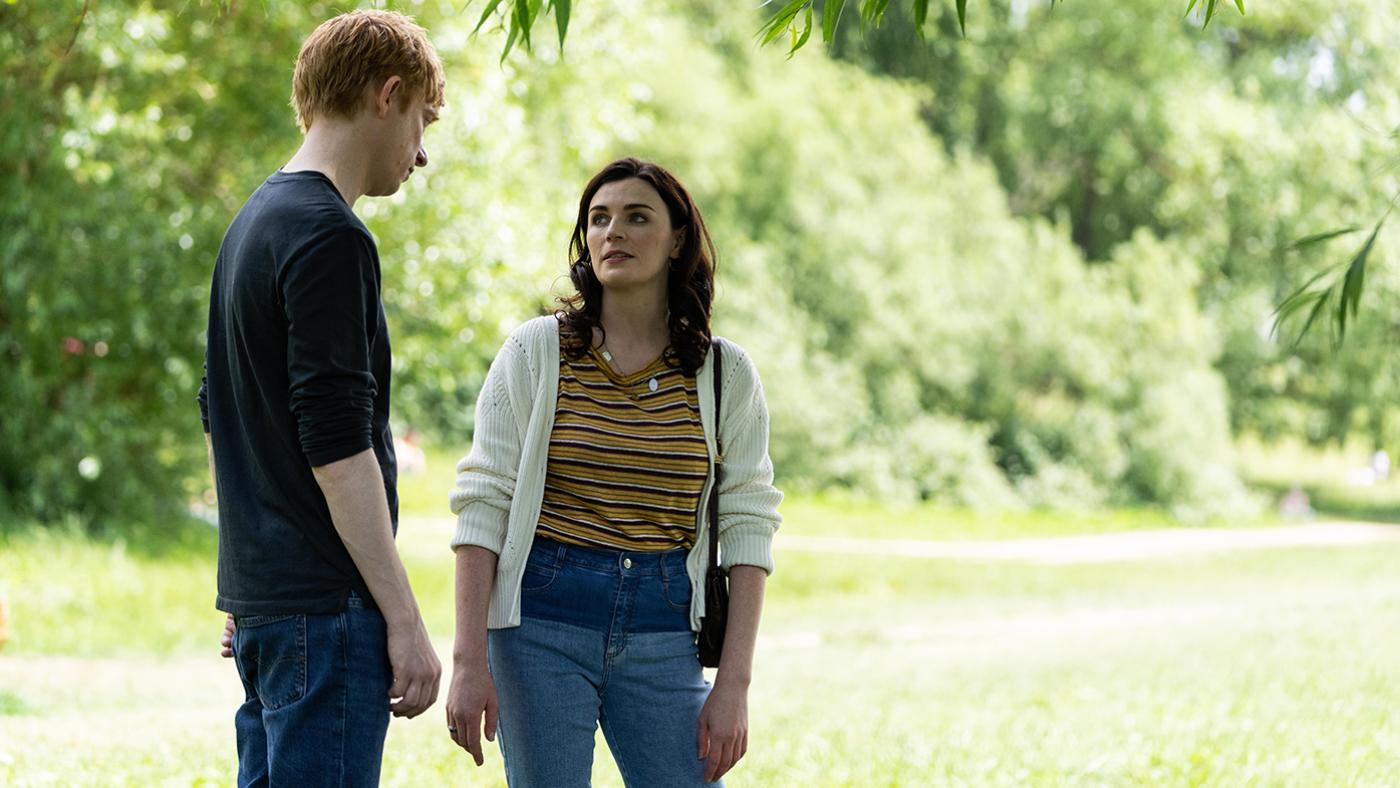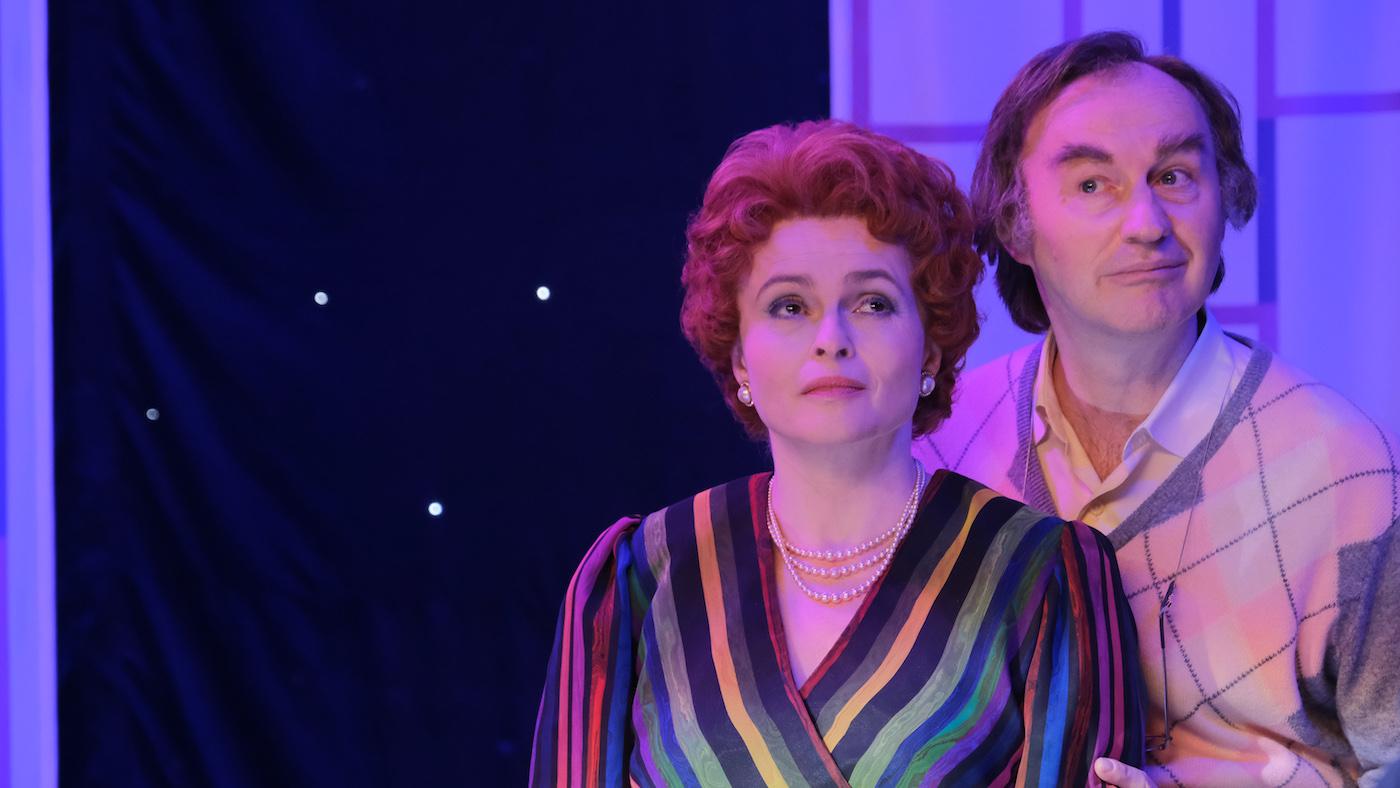"The Great Force of History": An Interview with a Creator of 'Mercy Street'
Daniel Hautzinger
February 7, 2017
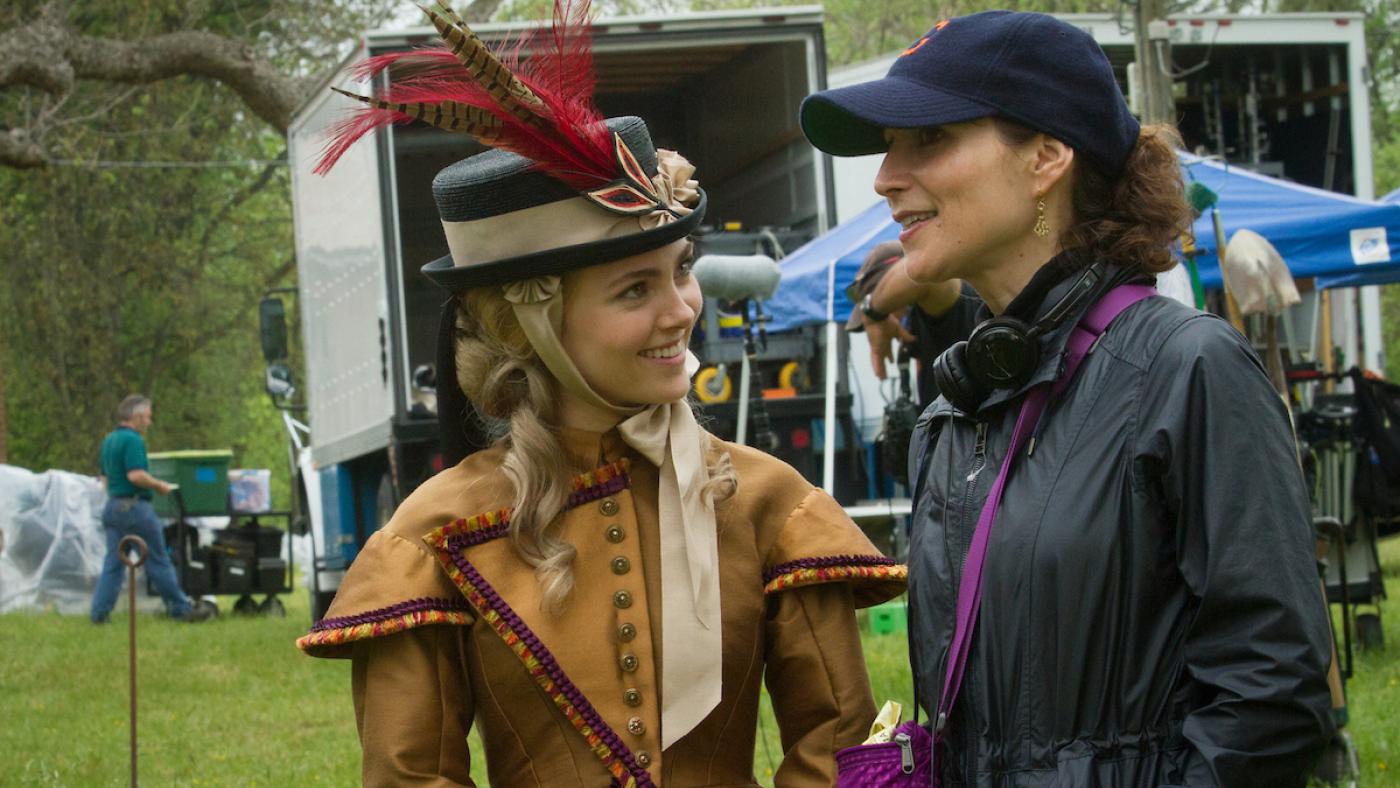
Mercy Street airs Sundays at 7:00 pm, and previous episodes are available to stream here.
Lisa Quijano Wolfinger is the Co-Creator and Executive Producer of PBS's original Civil War drama, Mercy Street, which airs Sundays at 7:00pm and can be streamed here. We spoke to her about the stories behind the series, the importance of history, and the difficulties of creating an elaborate period drama.
Where did the idea for Mercy Street come from?
Mercy Street was initially inspired by the stories of doctors and female volunteer nurses who were in many ways the unsung heroes of the Civil War. One nurse in particular caught my attention early on: Mary Phinney Baroness Von Olnhausen. (Yes… quite a mouthful!) She worked as a nurse in Mansion House Hospital in Alexandria, Virginia. The hospital, a repurposed grand hotel, offered a rich, dysfunctional environment, but even better was the town itself. Alexandria was a Confederate town occupied by the Union all four years of the war. It had North and South built in. It was a border town, an Army town, a hospital town, and a destination point for thousands of African Americans headed north fleeing bondage. All of these people co-existing gave us a cauldron of conflicting voices, politics, and experiences. The one truth about this war is that it meant different things to different people and we wanted to capture as many of those nuances as possible.
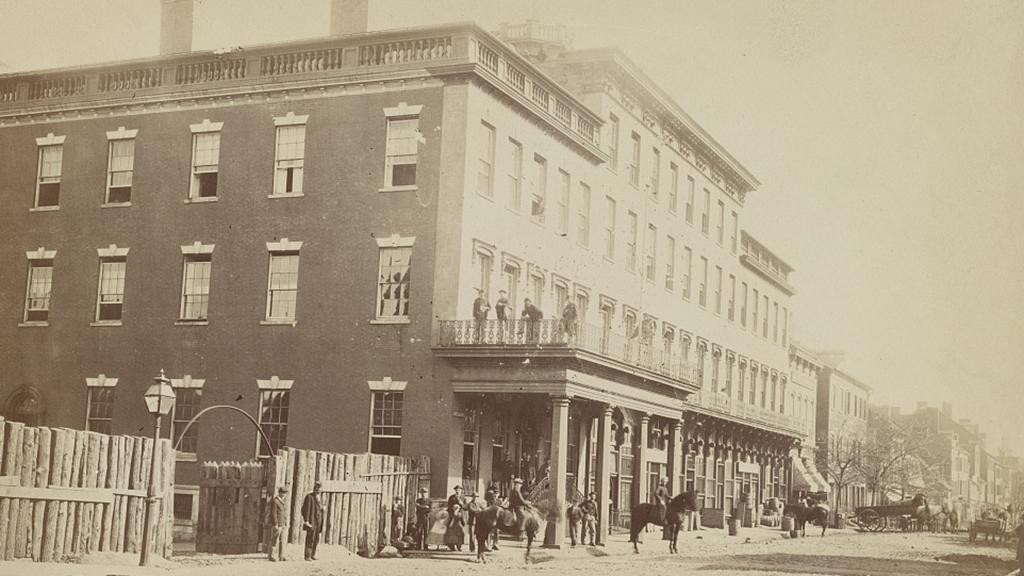 The real life Mansion House Hospital in Alexandria Virginia. (Library of Congress)What drew you to the Civil War as an era for a period drama?
The real life Mansion House Hospital in Alexandria Virginia. (Library of Congress)What drew you to the Civil War as an era for a period drama?
We think of the Civil War as a brutal, devastating chapter in American history, (and indeed it was!), but it was also a period of remarkable social transition that presented opportunities unthinkable just a few years before. Doctors, faced with mass casualties on an unprecedented scale, were pushing the boundaries of medical science; women were leaving the confines of the home and volunteering as nurses; and thousands of escaped slaves who had made it behind Union lines were getting their first taste of freedom. All of those elements gave us a very rich world to explore. Also, no one had done a great Civil War drama recently, certainly not from the vantage point of strong female protagonists, and the themes we deal with—sexism, racism, intolerance, prejudice, polarizing politics—are unfortunately still very relevant today.
Why a period drama?
Period dramas do two things—they allow filmmakers and viewers to explore difficult themes in a “safe” setting, (the past), and they provide an escape from an often confusing and overwhelming present. Our primary goal is entertainment, (much like other period dramas), but there is no doubt that we have much to learn from 1862 America. History cannot and should not be forgotten, because, as writer James Baldwin put it best, “The great force of history comes from the fact that we carry it within us, are unconsciously controlled by it in many ways, and history is literally present in all that we do.”
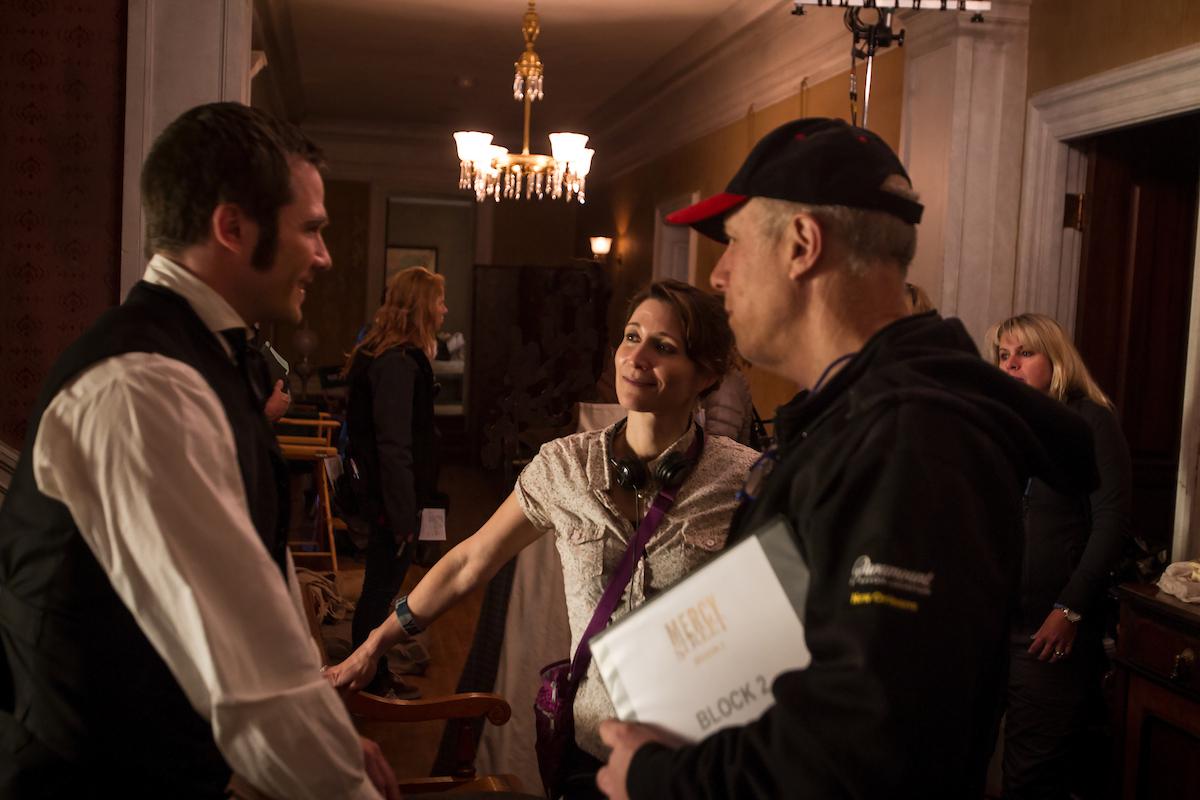 Wolfinger on set speaking to Luke MacFarlane, who plays Chaplain Hopkins. (Courtesy of PBS/Erik Heinila)What attracts you to history?
Wolfinger on set speaking to Luke MacFarlane, who plays Chaplain Hopkins. (Courtesy of PBS/Erik Heinila)What attracts you to history?
I am passionate about history. I went to school in England in a castle built in 1776 and was steeped in history at a young age. It was all around me. To me history is about colorful characters and dramatic stories. There are no better stories than true stories. But creating a historical drama, especially for PBS, is an enormous undertaking and requires attention to detail at every stage. My creative partner, Mercy Street’s lead writer, David Zabel (who was also the showrunner and lead writer on NBC’s ER for many years) and I will spend months reading histories, novels, articles, memoirs, and letters before even starting the writers’ room. That way we can begin the process of breaking down our characters’ storylines armed with facts and stories we know we want to draw from. And even beyond the writing phase, every aspect of this production, from the sets, props, and hair to the wardrobe has been thoroughly researched and vetted for accuracy. Having said that we are sometimes forced to make informed guesses if the experts don’t have the answers, and occasionally have to compromise on small details to make our budget work.
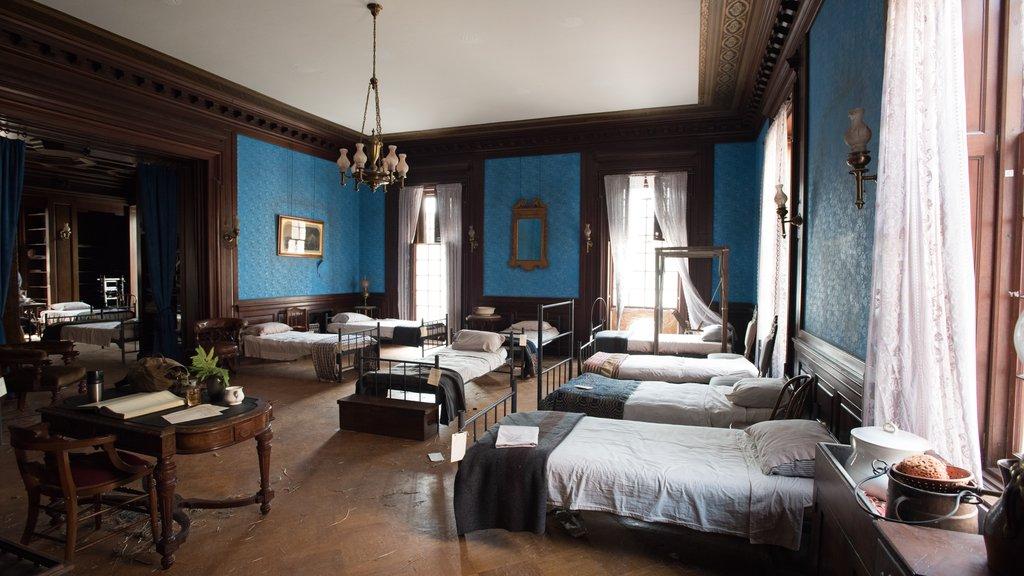 The set inside Mansion House Hospital. (Courtesy of PBS)What was your vision for season 2?
The set inside Mansion House Hospital. (Courtesy of PBS)What was your vision for season 2?
We wanted to expand the scope of the series and move beyond the confines of the hospital and the Green home. We wanted to feel the proximity of war more acutely, deepening our sense of the closeness of the battle and exploring its impact on our people. We also wanted to increase the romance factor and highlight the humor even more. I think we’ve done a good job this season of balancing the humor and the drama. It is always a tricky balance to pull off. We are fortunate to have such a talented cast who can turn on a dime and make you laugh and cry in the space of a scene.
Who is your favorite character on Mercy Street?
That is a tough one! All the characters are favorites. It would be like choosing your favorite child. I am very excited this season about a new character, Charlotte Jenkins. Charlotte is based on a real character, Harriet Jacobs, a slave who escaped bondage in the 1840s, created a life for herself in Massachusetts with the help of abolitionists, and wrote a powerful slave narrative. During the war she went to Alexandria to help the thousands of sick and destitute Contrabands. We loved the idea of introducing a strong African American female activist who could really challenge the character of Samuel Diggs, as well as the other hospital staff.
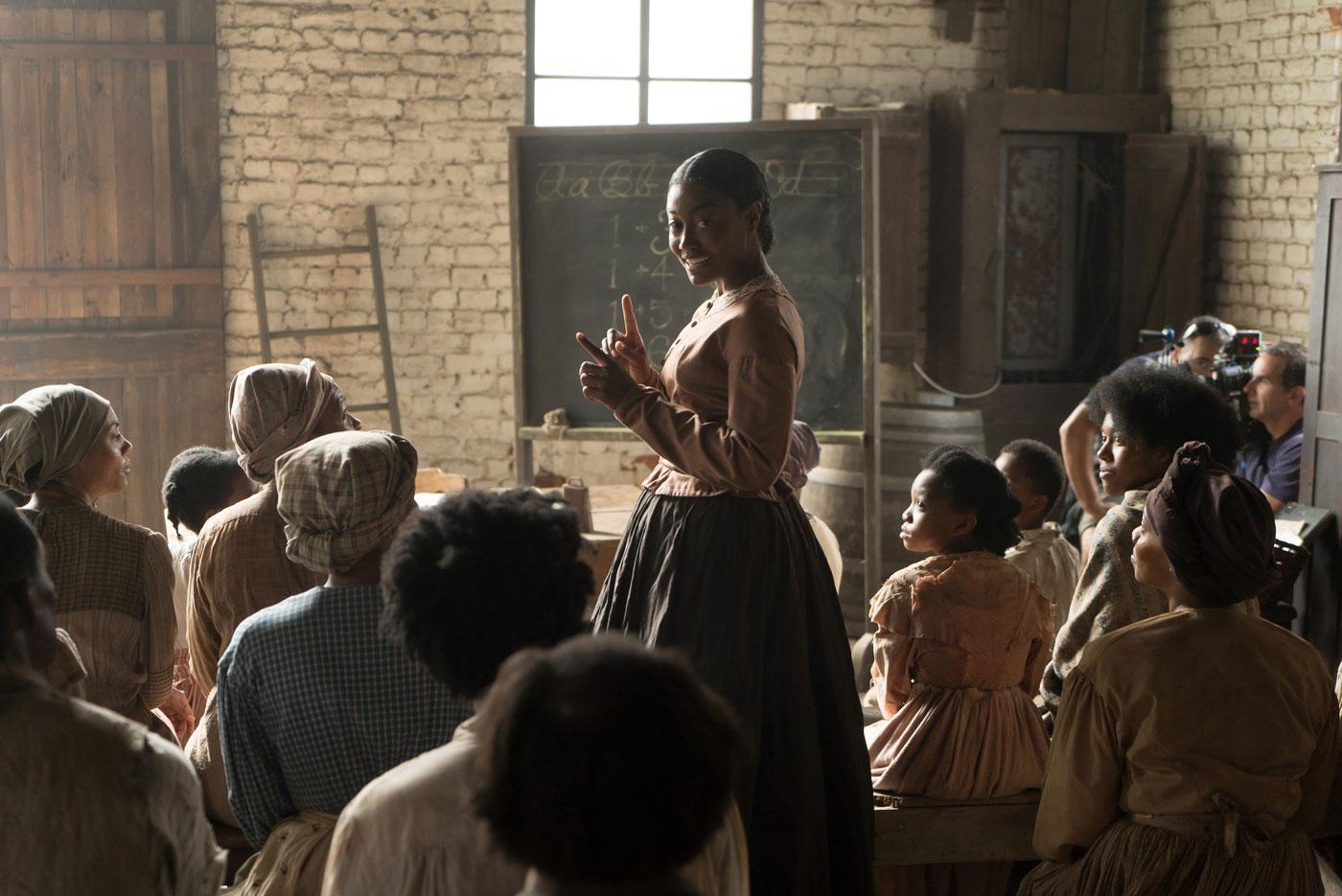 Charlotte Jenkins was based on a real-life activist, Harriet Jacobs. (Courtesy of PBS/Erik Heinila)What are you most proud of about Mercy Street?
Charlotte Jenkins was based on a real-life activist, Harriet Jacobs. (Courtesy of PBS/Erik Heinila)What are you most proud of about Mercy Street?
What am I most proud of? Pulling off the first original American drama series on PBS in over a decade. It was high time PBS added an original scripted drama about American history with a largely American cast to its lineup. Don’t get me wrong, I love British period drama, but we are well capable of making our own dramas about our own history!
What is the most difficult part of your job working on Mercy Street?
I love every aspect of it but it is a demanding job. I’m involved in all aspects of writing and production: researching, breaking down storylines in the writers’ room, vetting scripts, consulting with experts on historical accuracy, and working with my production team (production designer, costume designer, props, hair, make-up) in Richmond, making sure that they fully realize our vision. I’m involved in casting, scouting locations, and prepping directors. I’m also involved in post-production. And of course I’m involved in all aspects of promotion from posters to trailers. Making an episodic series is much more than a job; it’s more akin to birthing and raising a child! And I should know—I have four sons and they are only just starting to leave the nest.

